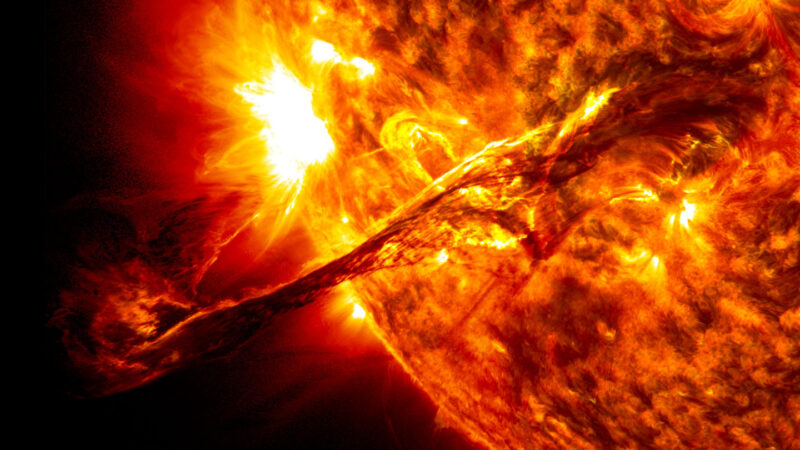atmosphere: The envelope of gases surrounding Earth, another planet or a moon.
average: (in science) A term for the arithmetic mean, which is the sum of a group of numbers that is then divided by the size of the group.
coronal mass ejections: The powerful release of huge bubbles of gas threaded with magnetic field lines. These can be spew from the sun over a span of hours. They can accompany solar flares, but usually do not.
eclipse: This occurs when two celestial bodies line up in space so that one totally or partially obscures the other. In a solar eclipse, the sun, moon and Earth line up in that order. The moon casts its shadow on the Earth. From Earth, it looks like the moon is blocking out the sun. In a lunar eclipse, the three bodies line up in a different order — sun, Earth, moon — and the Earth casts its shadow on the moon, turning the moon a deep red.
field: (in physics) A region in space where certain physical effects operate, such as magnetism (created by a magnetic field), gravity (by a gravitational field), mass (by a Higgs field) or electricity (by an electrical field).
grid: (in electricity) The interconnected system of electricity lines that transport electrical power over long distances. In North America, this grid connects electrical generating stations and local communities throughout most of the continent.
magnet: A material that usually contains iron and whose atoms are arranged so they attract certain metals.
magnetic field: An area of influence created by certain materials, called magnets, or by the movement of electric charges.
magnetic field lines: The lines that surround a magnet (you can see this if you drop iron filings around the edges of a bar magnet).
mass: A number that shows how much an object resists speeding up and slowing down — basically a measure of how much matter that object is made from.
outage: (in energy) A term for a region that temporarily loses power (usually electric power) or the ability to operate.
plasma: (in…
Read the full article here







